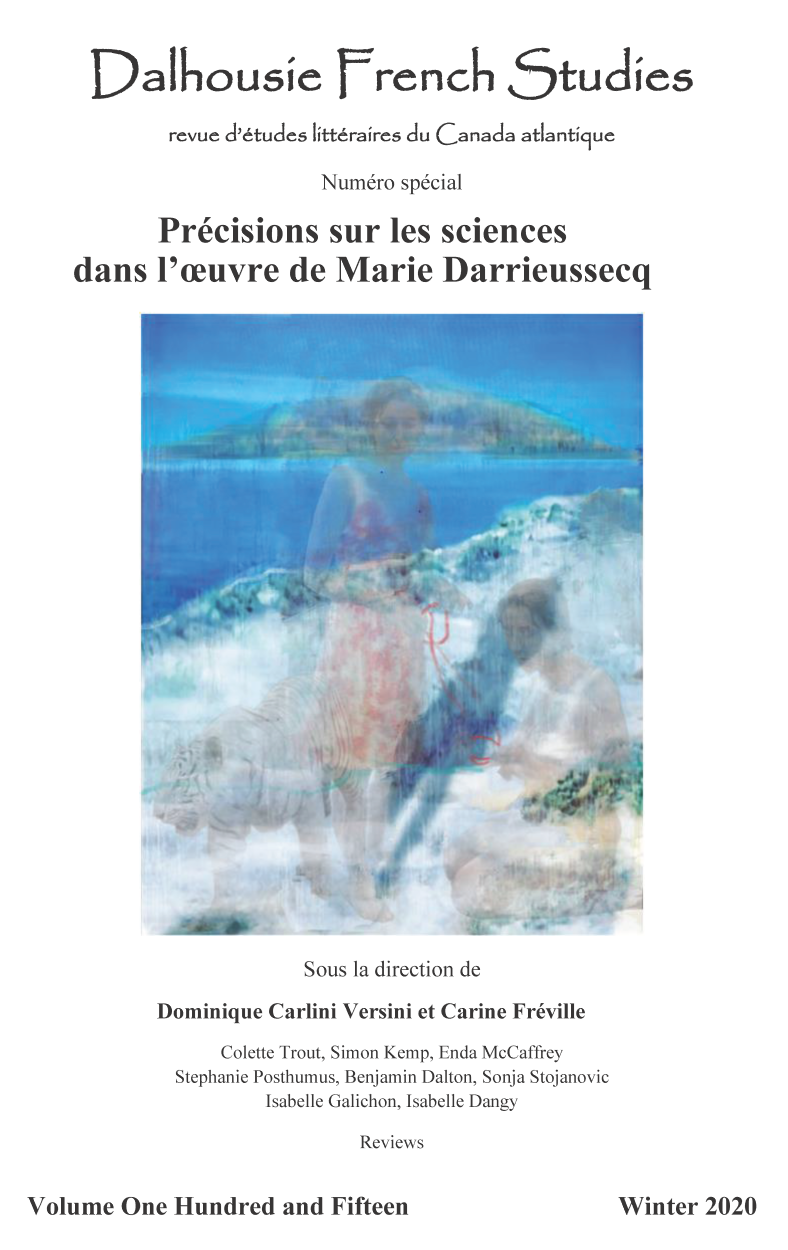Forms of Freedoms: Marie Darrieussecq, Catherine Malabou, and the Plasticity of Science
Résumé
Cet article établit un dialogue entre l‘écriture de Marie Darrieussecq et la philosophie de Catherine Malabou, afin d‘explorer la façon dont les notions de mutabilité et de transformabilité du corps dans l‘oeuvre de chacune se développent au sein d‘une rencontre avec les discours scientifiques et technologiques récents. De la métamorphose d‘une femme en truie dans Truismes (1996) au clonage humain dans Notre vie dans les forêts (2017), les romans de Darrieussecq mettent en scène le corps comme un lieu de changements et de réinventions constants. En parallèle, dans l‘oeuvre de Malabou, l‘élaboration interdisciplinaire, entre philosophie et biologie, du concept de « plasticité », suggère un déploiement de cette plasticité à travers toutes les structures et toutes les formes de la vie. La neuroplasticité du cerveau humain et le développement épigénétique de l‘organisme font partie des exemples de ces structures intrinsèquement ouvertes à la transformation. Cet article présente Darrieussecq et Malabou comme écrivaines et penseuses de la plasticité tout en montrant que leurs plasticités respectives se développent à travers une relation aux sciences qui est elle aussi mutable et ambiguë. De manières différentes mais convergentes, Darrieussecq et Malabou donnent à voir la façon dont les sciences se découvrent et s‘inventent à travers la plasticité, tout en manipulant et instrumentalisant cette même plasticité, notamment dans le contexte du capitalisme tardif. En outre, de manière plus optimiste, ce travail envisage aussi le devenir-plastique des sciences elles-mêmes chez Darrieussecq comme chez Malabou. Le discours sur la plasticité devient discours sur la liberté, où s‘entremêlent science, littérature et philosophie.
This article brings the writing of Marie Darrieussecq into dialogue with the philosophy of Catherine Malabou, exploring how both think the mutability and transformability of the body in relation to recent scientific and technological discovery and innovation. From the metamorphosis of a woman into a sow in Truismes (1996) to the cloning of human life in Notre vie dans les forêts (2017), Darrieussecq‘s novels foreground the body as a site of constant change and reinvention. Meanwhile, Malabou‘s interdisciplinary elaboration of the concept of ‘plasticity‘ between continental thought and the biological sciences reveals all structures and forms of life to be plastic and intrinsically open to change, from the neuroplasticity of the human brain to the epigenetic development of organisms. This article presents both Darrieussecq and Malabou as writers and thinkers of plasticity, exploring how their respective plasticities develop through a relationship to science which is itself changeable and ambiguous. In different but converging ways, both suggest how science discovers and innovates with the plasticity of life, whilst often also controlling and manipulating this same plasticity in the context of late capitalism. More optimistically, this article proposes that Darrieussecq and Malabou also envisage a becoming plastic of the sciences themselves, liberating plasticity as a discourse of freedom as a thinking with science, literature, and philosophy.


